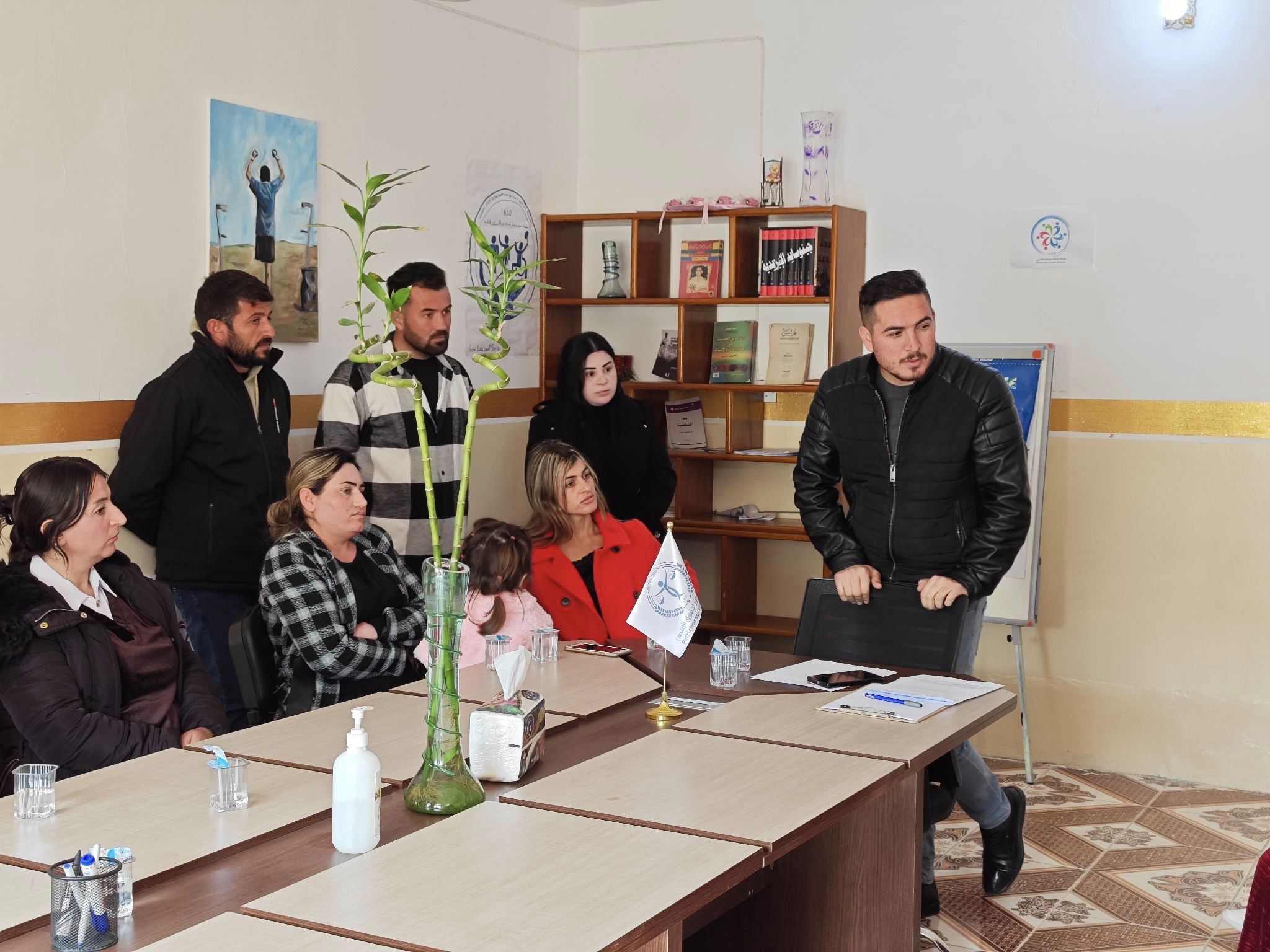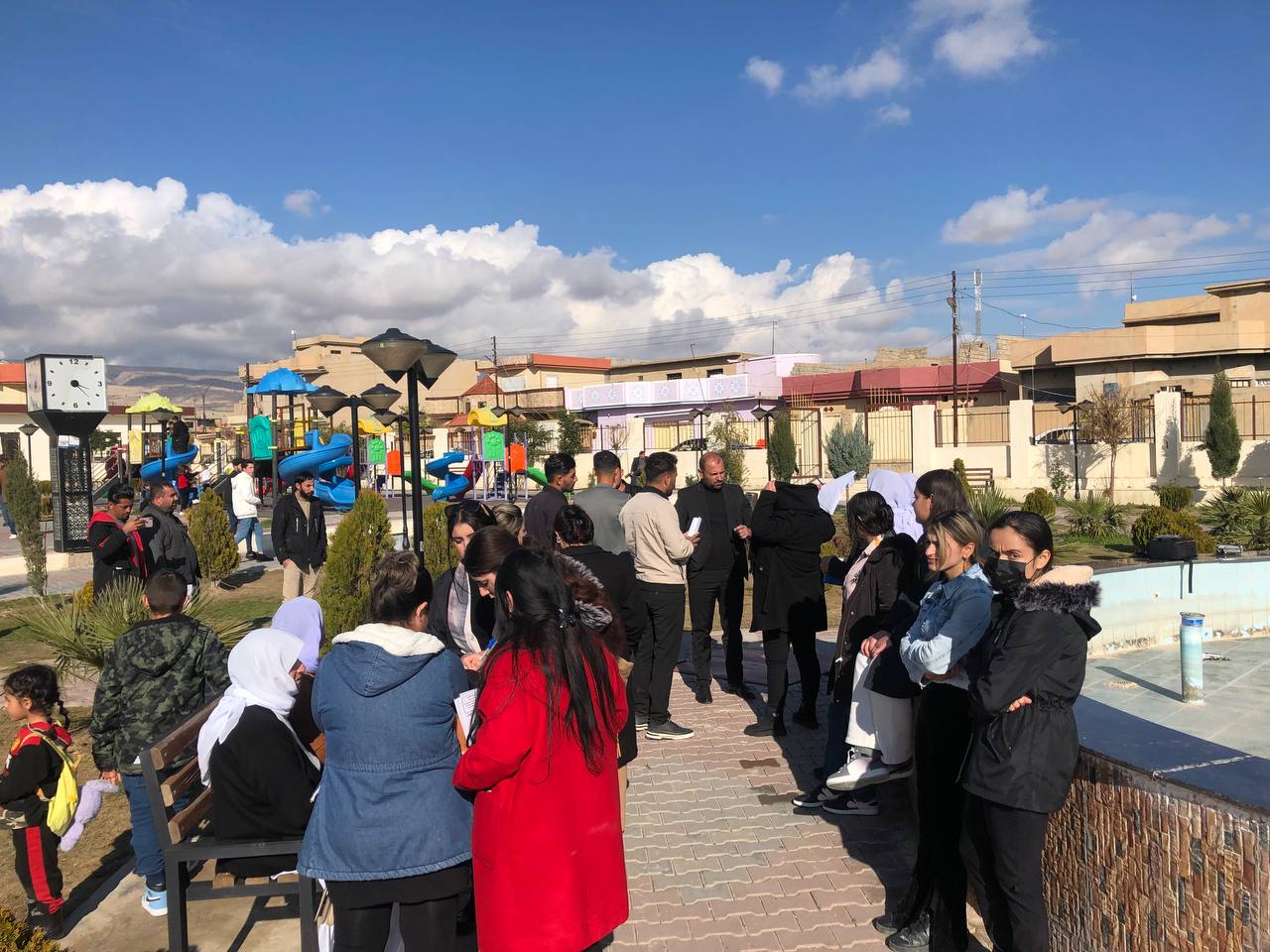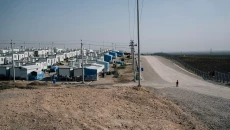Although they submitted required documents and followed the procedures for obtaining compensation and receiving a monthly salary, the requests of dozens of Ezidi women who survived ISIS captivity were rejected by the committee appointed by the Iraqi government.
According to KirkukNow's observations, about 200 Yazidi survivors from different areas in Nineveh Province have not been processed to obtain compensation, a monthly salary, and a residential plot of land, for lack of proper identification and documents.
“The Survivors Law is the only law that was issued in our favor, but it does not include all of us. I checked with the General Directorate of Survivors Affairs and appointed a lawyer, but my request is rejected every time,” said Zarif Rasho, an Ezidi (Yazidi) survivor.
At the end of last January, a group of survivors organized a gathering in Shingal (Sinjar) district, home for the non-Muslim Ezidi community, to protest against being denied compensation.
"I have all the necessary documents and papers, but they insist on refusing every time. We submitted our complaint to the relevant authorities several times, but without results," she told KirkukNow.
The Survivors Law, which was approved by the Iraqi Parliament on March 1, 2021, includes granting survivors material and moral compensation with the aim of providing them with a decent life, reintegrating them into society, and granting them a salary and a plot of land or a housing unit.
A number of the abductees had been paid salaries and residential plots of land were allocated to be distributed to them within the framework of the law.
To obtain compensation, the Ezidi survivor must be officially registered as a survivor in the courts of Iraq, the Iraqi Kurdistan Region IKR, and the Office for the Rescue of Kidnapped Ezidis, affiliated with the Kurdistan Regional Government KRG.

Shihab Ahmed, director of survivors’ affairs in Shingal district, said they are aware of the survivors’ problem, but the issue is outside the scope of their powers, as a committee of judges and the directorate has been formed to follow up.
“Those who applied for compensation can appeal the decision, and we, in turn, will inform the committee of their complaints,” according to the director of survivors’ affairs.
The law does not only include Ezidi women, but also Christian, Turkmen and Shabak women and girls who were kidnapped by the extremist militants of the Islamic State of Iraq and Syria ISIS and were freed from captivity or who survived the massacre campaigns.
Raad Nawaf, Vice President of the Petrichor Organization for human rights that provides legal advice to IS survivors free of charge, told KirkukNow that the organization is working to ensure that all survivors are covered by the privileges of the law and that it will continue to follow up on the case, but their efforts have not yielded anything so far.
Statistics obtained by the KirkukNow showed that about 1,600 survivors of the Yazidi, Turkmen, Shabak and Christian components were included in the compensation stipulated by the law.
IS Militants took control of the city of Mosul, center of Nineveh province and large swathes of Iraq on June 10, 2014, and on August 3 of the same year they attacked Shingal, abducted 6,417 Ezidi civilians, mainly women and children, Yet only 3,500 abductees have been freed.
According to statistics published earlier by the KirkukNow, out of a total of 1,300 kidnapped Turkmen, most of them from the Tal Afar district, only 48 of them were freed, and 62 Christians went missing during the rule of ISIS, but there are no statistics regarding the kidnapped members of the Shabak community.
There are attempts to amend the Ezidi Women Survivors Law, which includes several articles and other paragraphs related to compensation, with the aim of expanding the circle of those covered by the law in Iraq.
The Ezidi survivors are reluctant to accept amendments to Ezidi Women Survivors’ Law, saying it is "unfair" to change the content of the law after a draft amendment was sent to the Iraqi parliament.
The amendment to the law on Ezidi survivors has been prepared by the presidency of the republic to change a number of articles and clauses, but has not yet been included in the agenda of parliamentary sessions.






